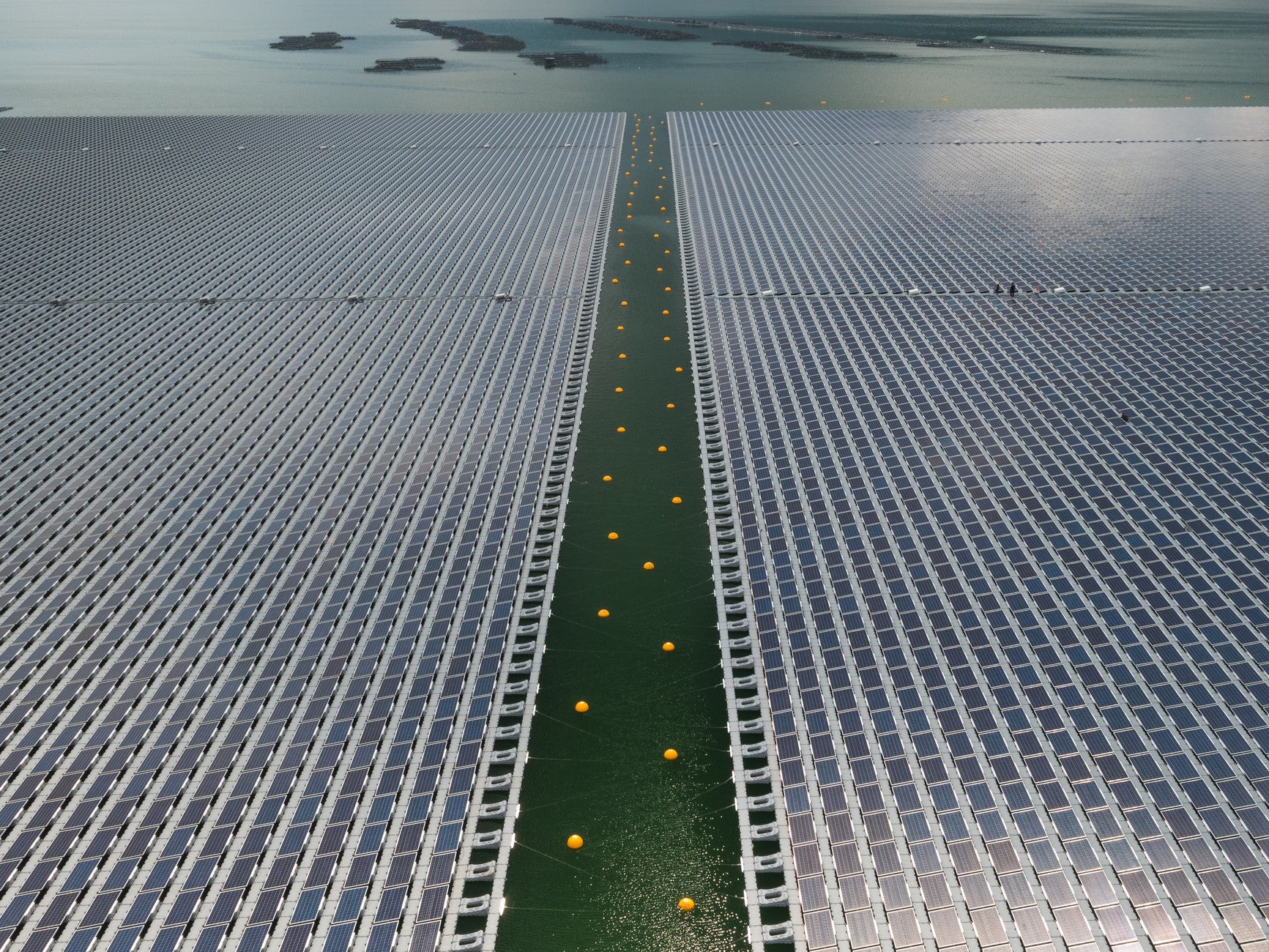The Independent's journalism is supported by our readers. When you purchase through links on our site, we may earn commission.
Floating solar panels on reservoirs could power a third of the world, study finds
The world’s 115,000 reservoirs hold the potential for a clean energy revolution, scientists say

Solar panels installed on reservoirs could generate enough electricity to power a third of the world, according to a new study.
Floating photovoltaic systems, known as “floatovoltaics”, also have the added benefits of reducing evaporation by shading the water, as well as preserving land for other uses.
An international team of scientists calculated that 30 per cent coverage of global reservoirs could produce 9,434 terawatt hours (TWh) of power per year. This would meet more than twice the energy demand of the entire US annually.
Annual global energy consumption is estimated to be 22,800 TWh, meaning floatovoltaics on a third of reservoir surfaces could meet a third of global demand.
“Considering the proximity of most reservoirs to population centres and the potential to develop dedicated local power systems, we find that 6,256 communities and/or cities in 124 countries, including 154 metropolises, could be self-sufficient with local floating photovoltaic plants,” the scientists wrote in a new study.
Among the countries that could benefit most from generating energy from floating solar panels are three of the biggest polluters: Brazil, China and India.
Solar panel costs have reduced significantly in recent years, offering a relatively cost effective way to increase the roll out of renewable energy sources to meet net zero targets.
The biggest obstacle beyond cost is where to place them, with some land owners, conservationists and authorities resisting efforts to install them in many areas.
Floating solar panel facilities have already been tested and proved, with the Dezhou Dingzhuang Floating Solar Farm in China currently generating more than 320-megawatts.
The latest research was detailed in a study, titled ‘Energy production and water savings from floating solar photovoltaics on global reservoirs’, in the journal Nature Sustainability.
Join our commenting forum
Join thought-provoking conversations, follow other Independent readers and see their replies
Comments
Bookmark popover
Removed from bookmarks